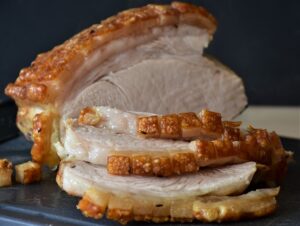Introduction
Protein powder is a popular dietary supplement used by athletes, fitness enthusiasts, and individuals looking to increase their protein intake. It is commonly used to support muscle growth, aid in recovery, and promote overall health. But how many calories are in protein powder? In this article, we will explore the calorie content of protein powder and provide you with a clear understanding of its nutritional value.
Calories in Protein Powder
Protein powder is primarily made from different sources of protein, such as whey, casein, soy, or plant-based proteins like pea or hemp. The calorie content of protein powder can vary depending on the type and brand. However, on average, protein powder contains around 100-130 calories per serving.
It’s important to note that the calorie content may also differ based on the serving size. Most protein powders recommend a serving size of around 30 grams, which typically provides 20-25 grams of protein. However, some brands may have larger or smaller serving sizes, so it’s essential to check the nutrition label for accurate information.
Factors Affecting Calorie Content
Several factors can influence the calorie content of protein powder. These include the type of protein used, the presence of additional ingredients, and the processing methods employed during manufacturing.
Type of Protein: Different protein sources have varying calorie contents. For example, whey protein isolate, which is highly refined and contains minimal carbohydrates and fats, generally has fewer calories compared to protein blends that may contain additional ingredients like carbohydrates or fats.
Additional Ingredients: Some protein powders may contain added ingredients such as sweeteners, flavorings, or thickeners. These can contribute to the overall calorie content of the product. It’s important to read the nutrition label to understand the specific ingredients and their corresponding calorie values.
Processing Methods: The processing methods used to manufacture protein powder can also impact its calorie content. For instance, protein powders that undergo additional processing steps to remove fats or carbohydrates may have lower calorie counts compared to those that retain these macronutrients.
Using Protein Powder for Weight Management
Protein powder is often used as a supplement for weight management or as a meal replacement. Its relatively low-calorie content and high protein content can help promote satiety and support muscle growth while limiting calorie intake. However, it’s important to consider the overall calorie balance and dietary needs when incorporating protein powder into a weight management plan.
If you are using protein powder as a meal replacement, it’s crucial to ensure that you are still consuming a well-balanced diet that includes a variety of whole foods. Protein powder should not be used as a sole source of nutrition, but rather as a complement to a healthy and balanced diet.
Conclusion
Protein powder typically contains around 100-130 calories per serving, but the actual calorie content can vary depending on factors such as the type of protein, additional ingredients, and processing methods. It’s important to read the nutrition label and consider the serving size when determining the calorie content of a specific protein powder. Remember that protein powder should be used as part of a well-rounded diet and not as a replacement for whole foods.
References
– Mayo Clinic: mayoclinic.org
– National Institutes of Health: nih.gov
– Academy of Nutrition and Dietetics: eatright.org













